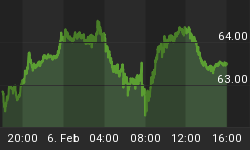Against the backdrop of discussions about pending negotiations over its controversial nuclear program and the upcoming deadline of an European embargo on Iranian oil comes a quiet push by the Islamic republic to become a major electricity exporter. Tehran had said it was expecting to secure electricity deals with Syria and Lebanon and had somehow attracted an estimated $1 billion to help build new power plants in the country. With some of the largest natural gas reserves in the world, Tehran might be able to shrug off international sanctions by embracing an ambitious electricity agenda.
European restrictions on Iranian oil go into force later this summer. Some U.S. allies in the European and Asian community have already started taking steps away from Iranian crude oil purchases in an effort to escape economic pressure from the West. Sanctions are meant to take oil revenue away from Tehran that its adversaries believe is financing a covert nuclear weapons program. But while U.S. Secretary of State Hillary Clinton was praising New Delhi for its coordination with U.S. nuclear concerns, Indian delegates were in the other room landing trade deals with visiting Iranians. This suggests that despite Western pressure, there's still some interest in working in an Iranian economy.
A week after Clinton left, Tehran started announcing that it was keen to develop a self-sufficient power sector. The Iranian government said it already has electricity export contracts with its neighbours, including Turkey and Iraq, and was now looking further away to Lebanon and Syria. The Energy Ministry said its electricity exports were up more than 38 percent for the calendar year ending in March, so there was plenty to go around. Despite an eight-year military and reconstruction campaign in neighbouring Iraq, Tehran could claim, parts of Baghdad still don't have a reliable source of electricity so why not take advantage of the opportunity.
Further still come claims that Tehran has set aside roughly $650 million for renewable energy programs. This, the government said, would come from a slush fund set up by Iranian President Mahmoud Ahmadinejad last year, when Iranian crude oil was still flowing freely, that designated 20 percent of the country's oil and gas revenue for such social investments. On top of that was the announcement that the private sector can now sell Iranian crude in an effort to escape sanctions pressure.
OPEC in its monthly ![]() report said oil supplies were greater than oil demand. The IEA, for its part, said that while Iranian crude exports were down sharply, an "apparent" easing of tensions between Iran and the international community was helping to keep crude oil prices down. So much for back-breaking gasoline prices. That being said, with Iran ranking in the Top 5 among world natural gas producers, it might be onto something with its electricity ambitions. And if it's indeed serious about a renewable energy program, its green revolution may come not from opposition leaders but in the form of renewables and natural gas.
report said oil supplies were greater than oil demand. The IEA, for its part, said that while Iranian crude exports were down sharply, an "apparent" easing of tensions between Iran and the international community was helping to keep crude oil prices down. So much for back-breaking gasoline prices. That being said, with Iran ranking in the Top 5 among world natural gas producers, it might be onto something with its electricity ambitions. And if it's indeed serious about a renewable energy program, its green revolution may come not from opposition leaders but in the form of renewables and natural gas.
Source: http://oilprice.com/Energy/Natural-Gas/Irans-Green-Revolution-may-come-from-Energy.html
By. Daniel Graeber of Oilprice.com















